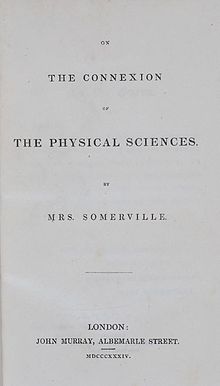Science book
A science book is a work of nonfiction, usually written by a scientist, researcher, or professor like Stephen Hawking (A Brief History of Time), or sometimes by a non-scientist such as Bill Bryson (A Short History of Nearly Everything).
Usually these books are written for a wide audience presumed to have a general education rather than a specifically scientific training, as opposed to the very narrow audience that a scientific paper would have, and are therefore referred to as popular science.
As such, they require considerable talent on the part of the author to sufficiently explain difficult topics to people who are totally new to the subject, and a good blend of storytelling and technical writing.
A few examples include Carl Sagan on astronomy, Jared Diamond on geography, Stephen Jay Gould and Richard Dawkins on evolutionary biology, David Eagleman on neuroscience, Donald Norman on usability and cognitive psychology, Steven Pinker, Noam Chomsky, and Robert Ornstein on linguistics and cognitive science, Donald Johanson and Robert Ardrey on paleoanthropology, and Desmond Morris on zoology and anthropology, and Fulvio Melia on black holes.
The roots of popular science writing can be traced back to the didactic poetry of Greek and Roman antiquity.
